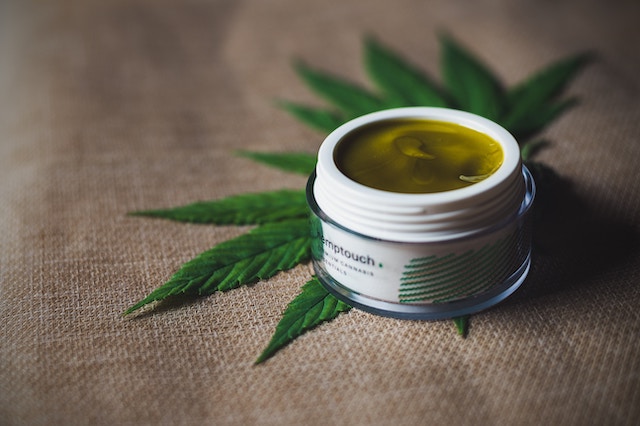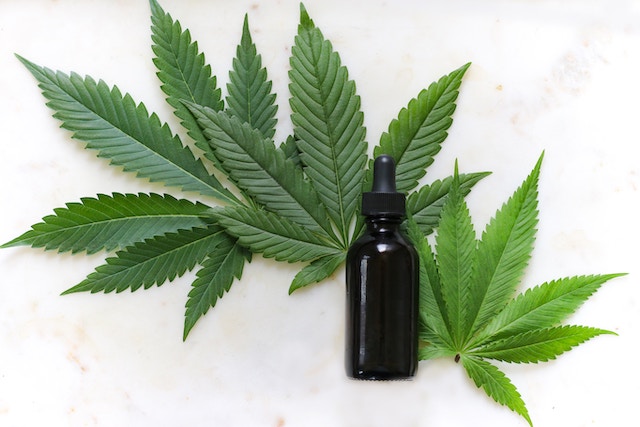
Talking to your doctor about medical marijuana may not always be easy. There are still many myths and misunderstandings surrounding this topic. However, you will definitely benefit from having an open discussion with your doctor.

In this article, we'll go over the seven main reasons why you should discuss medical marijuana with your physician.
#1: Your doctor has an important role
Are you looking to obtain a medical marijuana card in Hawaii?
A physician has to certify your condition as a compulsory step in the process. However, an important distinction must be made here.
Namely, the rules state that you must have:
- a bona fide physician-patient relationship or
- a bona fide advanced practice nurse-patient relationship.
In other words, you must have a genuine relationship with your licensed physician. That's why it's important not to catch them by surprise. Discuss your condition and needs. Do this before sending your physician a completed application for the Hawaii medical marijuana card.
Discussing the need for medical marijuana before helps you to understand your doctor's point of view. Your physician can tell you whether they agree that the particular condition needs this type of remedy.
Nevertheless, keep in mind that your doctor won't accept nor deny the application. All they can do is certify your condition, followed by submitting the application to the Department of Health (the DOH). This last step in the process may only be carried out by a physician, not the patient.
#2: Transparency is the key
Successful physician-patient relationships thrive on transparency. That's why you should always be honest about your previous experience with the drug. Moreover, communicate what your expectations are regarding its effects on your condition.

At times, people are reluctant to share prior experiences that clearly show how cannabis helped to treat their symptoms. Nevertheless, all of this is practical information that will help your doctor better evaluate your individual case.
This open communication involves letting your doctor know if you think that a certain medical cannabis product is especially useful for you. All of these explanations help your physician understand the potential benefits and risks of using medical marijuana to manage your condition.
#3: Prepare for potential side effects
Using medical marijuana may cause side effects. Going over the potential unpleasant effects with your doctor helps you notice and take action when these signs do appear.
Here are some of the possible side-effects:
- Concentration difficulties
- Fast pulse
- Feeling dizzy
- Mood changes
- Red eyes
- Urinary retention
The side-effects are highly individual and the risk of experiencing some of them depends on the administered dosage, cannabis strain, and other factors.
#4: Learn about the best approach
You can inform yourself about medical cannabis online. However, no amount of research replaces the extensive background and contextual knowledge possessed by a qualified physician.
This is why you'll benefit by asking your doctor the following questions:
- What type of medical cannabis product suits best for my case?

- What kind of side effects should I keep an eye out for?
- What is the latest research on the effects of cannabis on my condition?
#5: Know when you don't need cannabis
Medicinal marijuana is one solution among many others. Your physician will be able to evaluate the situation and let you know if cannabis is the best drug option for a particular case.
On a similar note, you could discuss with your doctor when to get off medical marijuana. You might set the treatment goals in terms of alleviating your symptoms. When medicinal marijuana isn't helping to counter these symptoms, it might be a time to try other methods.
#6: Stay on the safe side regarding interactions
All substances can interact with each other. Whichever medications you take, there's always a risk of interactions. Sometimes this means that one drug cancels out the other one's effects.
Another potentially dangerous result of drug interactions is unforeseen side effects. Neither of the taken medications creates side effects separately. However, once these drugs interact in your body, unexpected consequences could occur.
Clearing this up signifies telling your physician about all the medications you take, both the official and unofficial ones. Then your doctor can see whether there is any risk of a harmful interaction.
#7: Understand the different strains
Does your doctor have a deeper knowledge of medical marijuana?
If yes, you should definitely ask more about the various cannabis strains. Each has unique chemical compounds. Some active ingredients are more concentrated in some strains.

Ask your physician which strains have the most suitable characteristics for your conditions. This way, you can be sure that consuming medicinal marijuana comes with the most benefits.
The bottom line: why you should talk to your doctor about medical marijuana
Medical marijuana's popularity as a medication that alleviates numerous conditions is growing in Hawaii. Before obtaining a medical marijuana card, you need to get a physician's approval.
But getting the approval isn't the only reason why it pays to discuss medical marijuana use with your physician. For example, you can ask about the following aspects to maximize the potential of your treatment:
- What is the best medical marijuana product for your symptoms?
- What are the possible side effects?
- Are there any drug interactions you should know about?
- Is a particular strain more effective in your case?
- What are the alternative treatment options and medications?
Remember that the best strategy is to be open and honest about everything. Moreover, it's useful to ask as many questions as you can think of. The resulting discussion could elevate the results of your treatment.